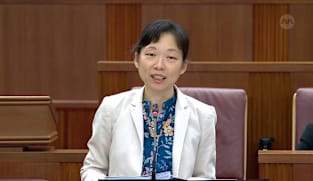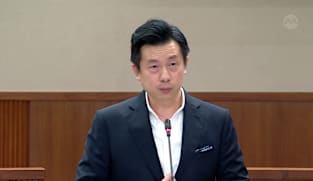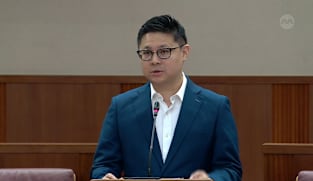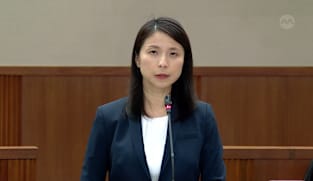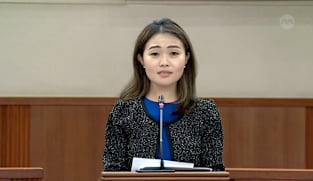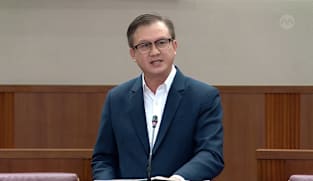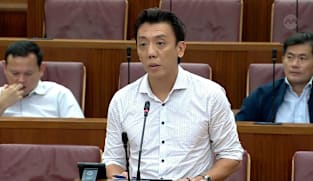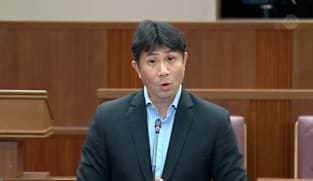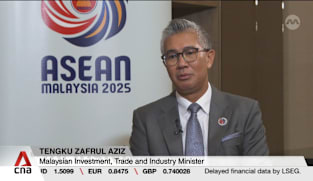Committee of Supply 2023 debate, Day 5: Tan Kiat How on transforming every part of the building cycle
The built environment (BE) sector is recovering well from the COVID-19 pandemic. Manpower bottlenecks have eased, allowing contractors to catch up with delayed works. As of end-2022, the number of Construction Work Permit Holders exceeded pre-COVID levels by around 15 per cent. Price increases for construction materials seem to be moderating. Construction activities are almost back to pre-COVID levels. Construction demand is expected to remain stable over the coming years. For 2023, the Building and Construction Authority (BCA) estimates that the total construction demand will be between S$27 billion and S$32 billion. In the next few years, the projected annual construction demand is expected to remain steady, at between S$25 billion and S$32 billion per year. The public sector will continue to be the main contributor as Singapore ramps up the supply of Build-to-Order flats, build more hospitals and healthcare facilities and enhance its public transportation network. Senior Minister of State for National Development Tan Kiat How sounded this upbeat note in Parliament on Thursday (Mar 2) and outlined ways that the Government is engaging its community and industry partners across a range of issues to tackle emerging challenges. In the push for sector transformation, he said the Government will lead by example. As the largest housing developer in Singapore, he said the Housing and Development Board (HDB) plays a crucial leadership role in investing in innovation and promulgating good practices. It is already implementing a range of technologies in the designing and building of flats, which means new flats get built faster, benefiting more Singaporeans earlier, he said. HDB has also been exploring new ways to maintain public housing estates. The Government is taking steps to transform every part of the building lifecycle, from the planning and design phase to the construction phase to the operations and maintenance phase of buildings. One way to facilitate this is by embracing digitalisation, or the adoption of Integrated Digital Delivery. This is a “digital spine” linking project stakeholders throughout the building lifecycle, said Mr Tan. To support small- and medium-sized enterprises (SMEs) in their digitalisation journey, BCA will launch a new S$21 million tranche of the Productivity Solutions Grant for the built environment sector. This new tranche provides SMEs with funding support of up to 50 per cent of the qualifying costs in adopting pre-approved digital solutions. The Government will roll out a new regulatory process for building submissions, CORENET X, by the end of the year. Mr Tan said CORENET X could reduce the time for a firm to obtain approvals across the development process by 20 per cent to 25 per cent, which translates to an overall four to five months’ worth of manpower savings. At the construction phase, the Government will be extending the Investment Allowance Scheme for the construction industry for another five years until 2028. This provides tax allowance for investments in advanced construction equipment. Mr Tan said the Government will also continue to step up efforts to operate and maintain buildings more sustainably. It will introduce a new Mandatory Energy Improvement regime by the end of next year to require the owners of buildings with poor energy performance to conduct an energy audit and implement measures to reduce energy consumption. These measures can include simple and cost-effective solutions, such as replacing faulty parts and sensors. Mr Tan said the Government is committed to engaging its community and industry partners on a range of issues, from the BE sector transformation to navigating human wildlife interactions, to tackle emerging challenges.
The built environment (BE) sector is recovering well from the COVID-19 pandemic. Manpower bottlenecks have eased, allowing contractors to catch up with delayed works. As of end-2022, the number of Construction Work Permit Holders exceeded pre-COVID levels by around 15 per cent. Price increases for construction materials seem to be moderating. Construction activities are almost back to pre-COVID levels. Construction demand is expected to remain stable over the coming years. For 2023, the Building and Construction Authority (BCA) estimates that the total construction demand will be between S$27 billion and S$32 billion. In the next few years, the projected annual construction demand is expected to remain steady, at between S$25 billion and S$32 billion per year. The public sector will continue to be the main contributor as Singapore ramps up the supply of Build-to-Order flats, build more hospitals and healthcare facilities and enhance its public transportation network. Senior Minister of State for National Development Tan Kiat How sounded this upbeat note in Parliament on Thursday (Mar 2) and outlined ways that the Government is engaging its community and industry partners across a range of issues to tackle emerging challenges. In the push for sector transformation, he said the Government will lead by example. As the largest housing developer in Singapore, he said the Housing and Development Board (HDB) plays a crucial leadership role in investing in innovation and promulgating good practices. It is already implementing a range of technologies in the designing and building of flats, which means new flats get built faster, benefiting more Singaporeans earlier, he said. HDB has also been exploring new ways to maintain public housing estates. The Government is taking steps to transform every part of the building lifecycle, from the planning and design phase to the construction phase to the operations and maintenance phase of buildings. One way to facilitate this is by embracing digitalisation, or the adoption of Integrated Digital Delivery. This is a “digital spine” linking project stakeholders throughout the building lifecycle, said Mr Tan. To support small- and medium-sized enterprises (SMEs) in their digitalisation journey, BCA will launch a new S$21 million tranche of the Productivity Solutions Grant for the built environment sector. This new tranche provides SMEs with funding support of up to 50 per cent of the qualifying costs in adopting pre-approved digital solutions. The Government will roll out a new regulatory process for building submissions, CORENET X, by the end of the year. Mr Tan said CORENET X could reduce the time for a firm to obtain approvals across the development process by 20 per cent to 25 per cent, which translates to an overall four to five months’ worth of manpower savings. At the construction phase, the Government will be extending the Investment Allowance Scheme for the construction industry for another five years until 2028. This provides tax allowance for investments in advanced construction equipment. Mr Tan said the Government will also continue to step up efforts to operate and maintain buildings more sustainably. It will introduce a new Mandatory Energy Improvement regime by the end of next year to require the owners of buildings with poor energy performance to conduct an energy audit and implement measures to reduce energy consumption. These measures can include simple and cost-effective solutions, such as replacing faulty parts and sensors. Mr Tan said the Government is committed to engaging its community and industry partners on a range of issues, from the BE sector transformation to navigating human wildlife interactions, to tackle emerging challenges.








